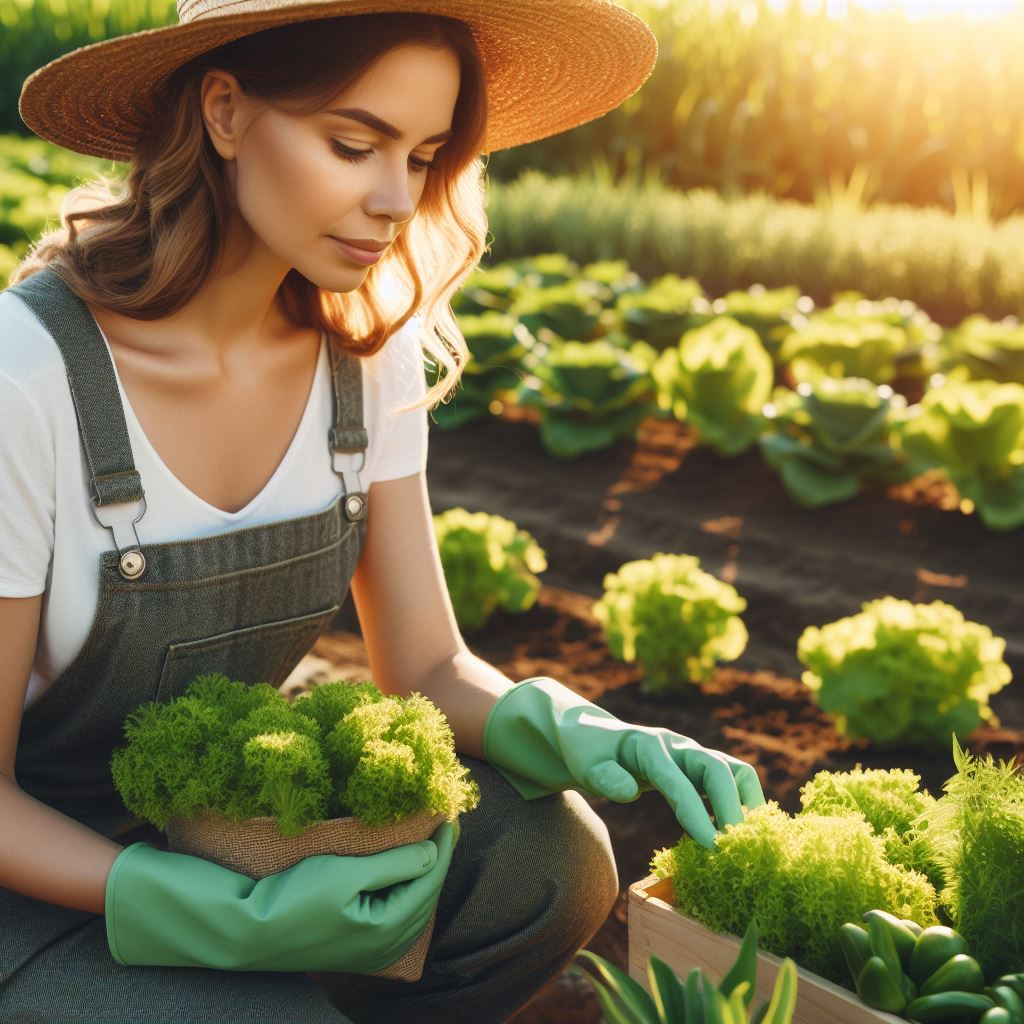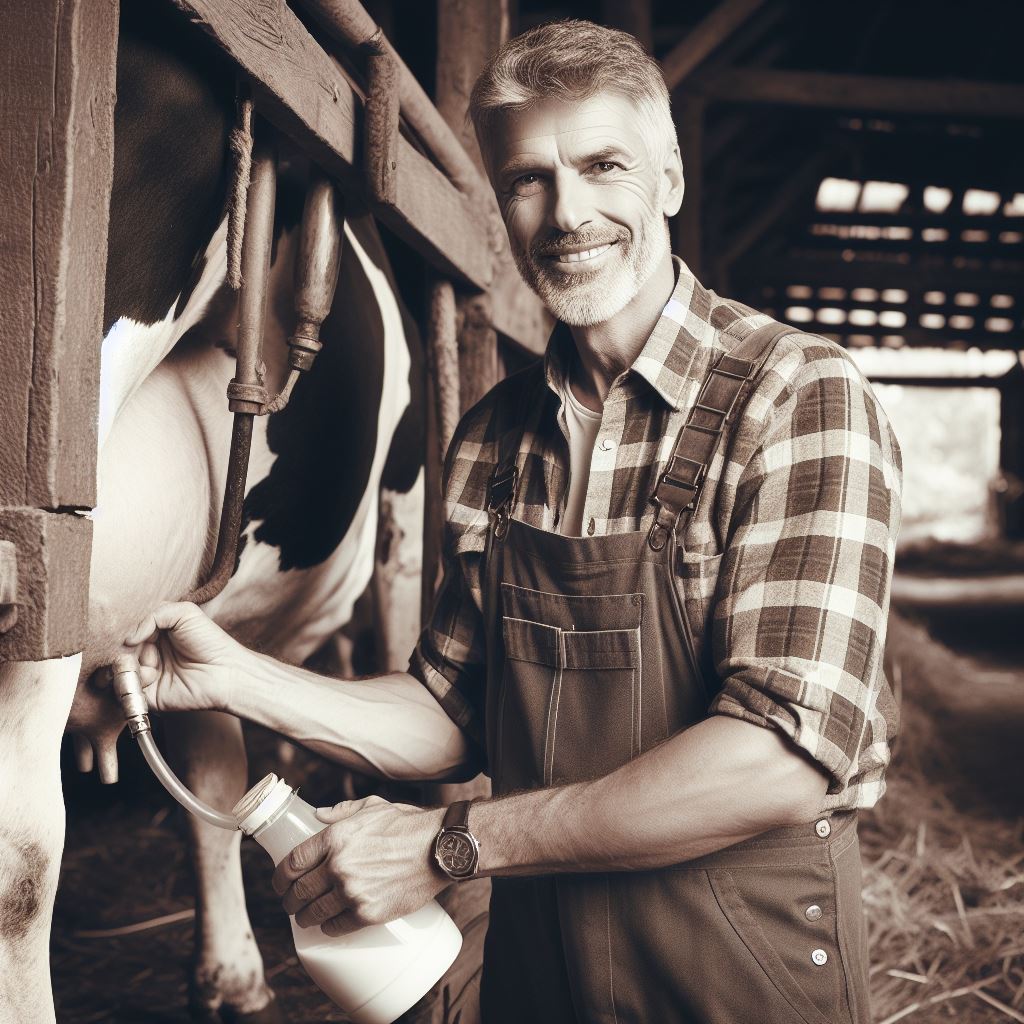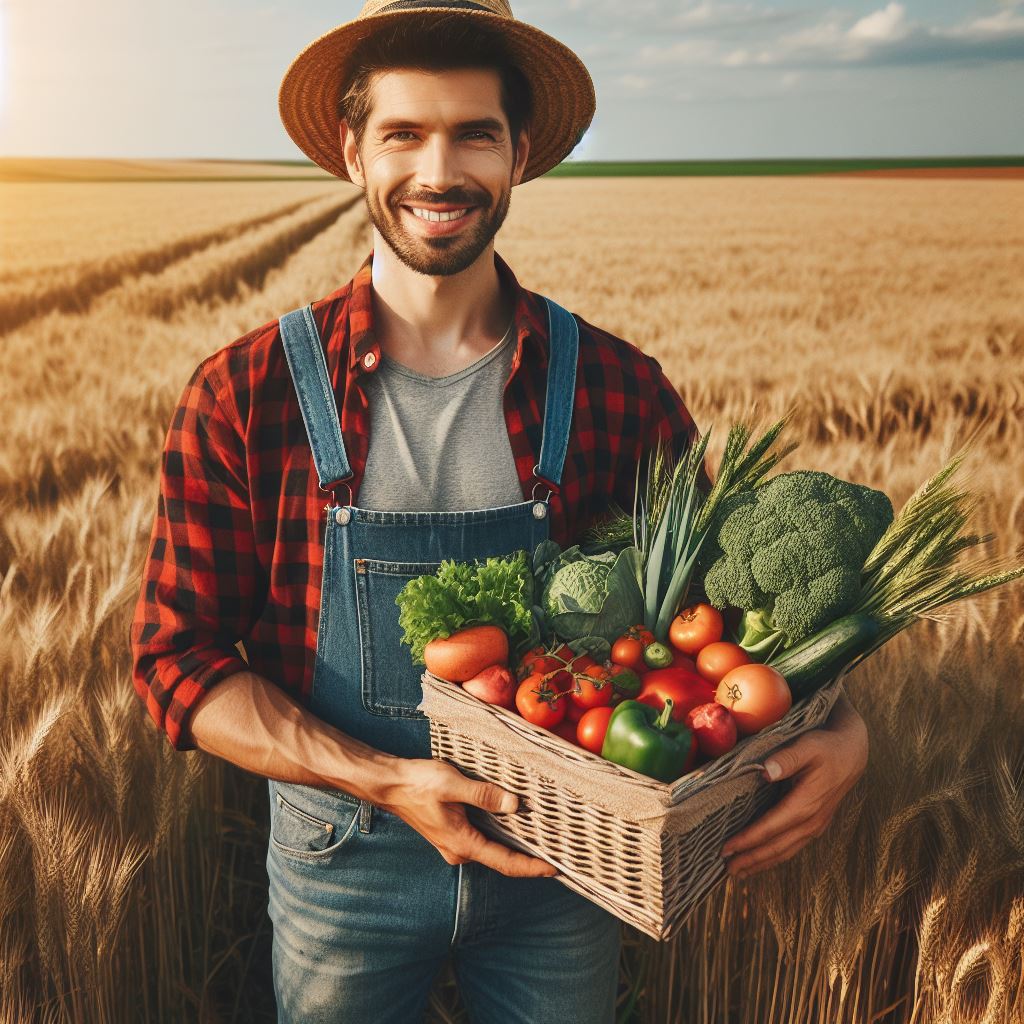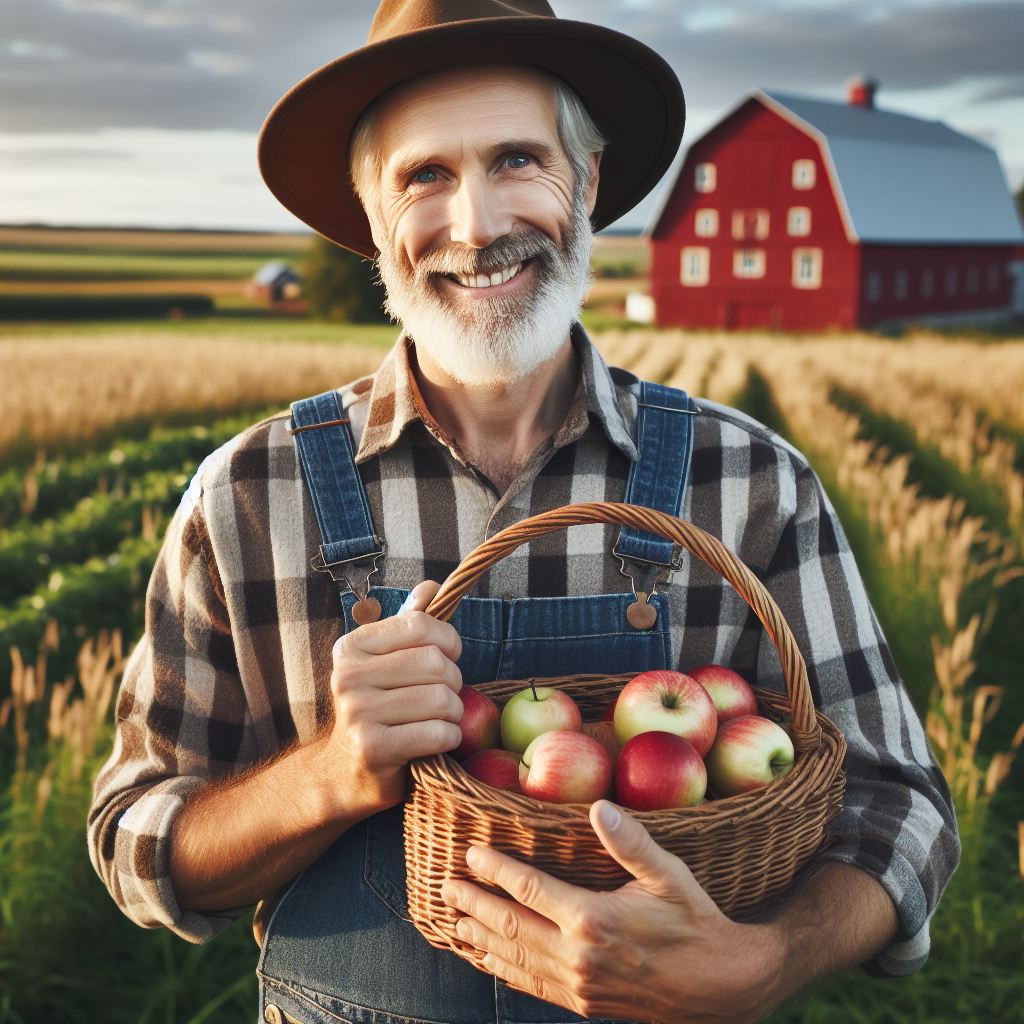Introduction
Seed selection is the fundamental aspect of organic farming, determining the success or failure of crop quality.
Selecting the right seeds is crucial as it ensures the production of healthy and high-quality organic crops.
Organic crop quality refers to crops that are grown without the use of synthetic pesticides, herbicides, or genetically modified organisms.
In the intricate realm of organic agriculture, where principles of sustainability and environmental stewardship reign supreme, one crucial facet stands as the bedrock of crop quality—Seed Selection.
As the fundamental cornerstone, it not only shapes the trajectory of growth but also embodies the essence of organic farming’s commitment to purity, resilience, and nutritional excellence.
The process of Seed Selection goes beyond mere agricultural practices; it encapsulates a profound understanding of biodiversity, soil health, and the delicate balance of ecosystems.
Each seed becomes a potential guardian of the organic crop’s genetic diversity, carrying within it the promise of resilience against pests, diseases, and the unpredictable nuances of climate.
Embarking on this journey of exploration, we delve into the art and science behind Seed Selection, unraveling the intricate tapestry that intertwines heritage varieties, adaptive traits, and cutting-edge agricultural research.
Join us as we navigate through the fascinating world of organic crop quality, where the careful curation of seeds emerges as a transformative force, shaping not only the present harvest but also the sustainable future of agriculture.
Discover how the conscientious choice of seeds cultivates a thriving environment, fostering a symphony of growth that harmonizes with the principles of organic farming, and yields crops that are not only nutritious but also resilient, embodying the very essence of a sustainable and regenerative agricultural paradigm.
Assessing soil and climate conditions
When it comes to seed selection for organic crop quality, assessing soil and climate conditions is crucial.
- Soil quality directly impacts crop growth and overall yield.
- Soil testing helps determine nutrient levels, pH balance, and presence of contaminants.
- Factors like soil structure, drainage, and aeration affect root development and nutrient absorption.
- Understanding climate conditions is essential for seed selection.
- Climate influences plant growth, disease susceptibility, and maturation time.
Impact of soil quality on crop growth
Seed selection should consider the impact of soil quality on the growth and health of crops.
- Nutrient-rich soil promotes healthy plant growth and higher yields.
- Poor soil quality can hinder nutrient availability and limit crop productivity.
- Soil pH directly affects nutrient absorption and plant metabolism.
- Soil contaminated with chemicals can lead to toxic accumulation in crops.
- Organic farming practices prioritize soil health for sustainable crop production.
Choosing seeds suitable for specific climates
Seeds should be carefully selected based on their suitability to specific climate conditions.
- Temperature variations greatly impact crop growth and development.
- Seeds adapted to specific temperature ranges tend to perform better.
- Different crops have varying temperature requirements for germination and growth.
- Rainfall patterns affect water availability and irrigation needs.
- Seeds suited to the typical rainfall levels of an area are more likely to thrive.
- Sunlight is crucial for photosynthesis, so sunlight duration and intensity should be considered.
Factors to consider: temperature, rainfall, sunlight
When selecting seeds for organic crop quality, several factors related to temperature, rainfall, and sunlight are important.
- Optimal temperature ranges ensure appropriate plant development and maturation.
- Seeds must be able to withstand extreme temperatures, be it heat or cold.
- Adequate rainfall during critical growth stages is vital for crop success.
- Drought-resistant seeds are preferable in regions with limited rainfall.
- Sunlight requirements differ among plants, and seeds should match their sunlight needs.
- Full-sun plants need at least 6 hours of direct sunlight, while shade-loving plants require less.
Seed selection is the core of organic crop quality because it determines the potential success of the entire harvest.
Transform Your Agribusiness
Unlock your farm's potential with expert advice tailored to your needs. Get actionable steps that drive real results.
Get StartedUltimately, successful seed selection for organic crop quality involves a comprehensive understanding of soil and climate conditions.
By considering these factors and choosing seeds tailored to the specific characteristics of an environment, farmers can maximize crop yields, enhance crop health, and contribute to sustainable organic agriculture.
Read: Harvesting Hope: Stories from Organic Farmers
Evaluating seed characteristics
Seed selection is a critical factor in determining the quality of organic crops.
In order to ensure that the crops grown are of the highest quality, it is important to evaluate certain characteristics of the seeds being used.
Disease resistance
One key characteristic to evaluate is disease resistance. Organic crops are grown without the use of synthetic pesticides, making them more vulnerable to diseases.
Selecting seeds that have a natural resistance to common diseases can help to minimize crop loss.
Pest resistance
Pest resistance is another important characteristic to consider when selecting seeds.
Organic crops are susceptible to attacks from pests, such as insects and rodents.
By choosing seeds that have built-in resistance to pests, farmers can reduce the need for chemical pest control methods.
Adaptability to organic farming practices
Adaptability to organic farming practices is also a crucial factor to evaluate.
Organic farming practices differ from conventional methods, and not all crops may be well-suited to these practices.
It is important to select seeds that can thrive under organic conditions, such as being able to tolerate natural fertilizers and compost.
Nutritional value of the crop
Lastly, the nutritional value of the crop should be taken into account when selecting seeds.
Organic crops are often grown with a focus on sustainability and health, so choosing seeds that will yield nutrient-rich crops is essential.
This can include selecting seeds that are high in vitamins, minerals, and other beneficial compounds.
When evaluating seed characteristics, there are several factors to consider. Firstly, the overall quality of the seeds should be examined.
This includes factors such as seed size, shape, and color. Seeds that are uniform in size and shape are typically more reliable and will result in more consistent crops.
Additionally, the germination rate of the seeds should be assessed.
High-quality seeds will have a high germination rate, meaning that a larger percentage of the seeds will successfully sprout and grow into healthy plants. This is important for maximizing crop yields.
Another factor to consider is the seed’s origin. Seeds that are produced locally or regionally are often better adapted to the specific growing conditions of the area.
They may be more resilient to local pests and diseases, and therefore more likely to thrive in organic farming systems.
Lastly, it is important to consider the overall reputation of the seed supplier.
Working with reputable seed companies that have a history of providing high-quality organic seeds can help to ensure that the seeds being used are reliable and of the highest quality.
Showcase Your Farming Business
Publish your professional farming services profile on our blog for a one-time fee of $200 and reach a dedicated audience of farmers and agribusiness owners.
Publish Your ProfileIn fact, seed selection is a critical aspect of organic crop quality.
Evaluating characteristics such as disease resistance, pest resistance, adaptability to organic farming practices, and nutritional value can help farmers choose seeds that will result in high-quality, sustainable crops.
By carefully assessing these characteristics and working with reputable seed suppliers, farmers can maximize their chances of success in organic farming.
Read: Eco-Friendly Pest Management in Organic Farms
Understanding seed types
In order to ensure the quality of organic crops, it is crucial to carefully select the right seeds.
Understanding the different types of seeds available in the market can help farmers make informed decisions.
Let’s take a closer look at the various seed types:
Open-pollinated seeds
Open-pollinated seeds are the traditional seeds that have been passed down from generation to generation.
They are pollinated by insects, wind, or other natural means.
- These seeds produce plants with consistent traits and characteristics.
- They are more genetically diverse, allowing them to adapt better to different growing conditions.
- Saving seeds from open-pollinated plants is possible, ensuring a sustainable practice.
Heirloom seeds
Heirloom seeds are a subset of open-pollinated seeds. They have a rich history and are considered to be of cultural or historical importance.
- These seeds have been preserved and passed down for many generations.
- They offer a wide range of unique flavors, textures, and colors.
- By choosing heirloom seeds, farmers contribute to the preservation of traditional varieties.
Hybrid seeds
Hybrid seeds are created by crossbreeding two different varieties. They often possess specific traits that make them desirable for certain conditions.
- Hybrids are carefully bred to exhibit desired characteristics such as disease resistance or high yields.
- However, saving seeds from hybrids may not produce plants with the same traits as the parent plants.
- Hybrid seeds need to be purchased each year, which can be a financial consideration for farmers.
Genetically modified organism (GMO) seeds
GMO seeds are genetically engineered to possess specific traits, but they are not applicable for organic farming.
- GMO seeds are developed through the alteration of the plant’s DNA, often by introducing genes from unrelated organisms.
- These seeds are primarily used in conventional agriculture due to their resistance to herbicides and pests.
- Organic farmers strictly avoid GMO seeds to adhere to the principles of organic farming.
Choosing the right seeds for organic crop production involves considering the specific goals, growing conditions, and farming practices.
- It is essential to select seeds that align with the farmer’s desired crop quality and characteristics.
- Climate, soil conditions, and local pests should also be taken into account when selecting seeds.
- Moreover, working with reputable seed suppliers ensures the integrity of the seeds and supports sustainable practices.
Remember, the seed selection process plays a vital role in determining the overall success and quality of organic crops.
By understanding the various seed types and making informed choices, farmers can contribute to a vibrant and sustainable organic farming industry.
Read: Organic Farming Myths vs. Facts: The Truth
Exploring seed sources
When it comes to organic farming, seed selection is a critical aspect that directly impacts crop quality.
The seeds you choose determine the foundation of your harvest and ultimately affect the taste, nutrition, and overall success of your organic crops.
To ensure the highest quality seeds for your organic farm, it is essential to explore various seed sources.
Here are some options to consider:
Local Seed Banks and Organizations
Local seed banks are treasure troves of regionally adapted seeds that have been cultivated over generations.
These seeds are well-suited to the local climate and can offer superior performance and resilience.
Additionally, supporting local seed banks helps preserve biodiversity and promotes sustainable farming practices within your community.
Certified Organic Seed Suppliers
Certified organic seed suppliers provide seeds that meet strict organic standards throughout the production process.
These suppliers ensure that their seeds are non-GMO, free of synthetic chemicals, and produced using organic farming practices.
By choosing seeds from certified organic suppliers, you can have confidence in the organic integrity of your crops.
Seed Saving and Exchange Networks
Seed saving is a traditional practice where farmers collect, store, and exchange seeds from their own harvest.
Participating in seed saving and exchange networks allows you to access a diverse range of seeds while supporting community resilience.
These networks are a fantastic way to discover unique and rare seed varieties that may not be readily available through commercial sources.
Benefits of selecting seeds from these diverse sources
Selecting seeds from these diverse sources offers numerous benefits for organic crop quality.
Here’s why it matters:
Genetic Diversity
Seeds from local seed banks, certified organic suppliers, and seed exchange networks provide access to a broader genetic pool.
This genetic diversity enhances the resilience and adaptability of your crops, making them more resistant to pests, diseases, and climate fluctuations.
By growing a variety of crops with different genetic traits, you also contribute to the preservation of heirloom and rare seed varieties.
Adaptability to Local Conditions
Local seed sources, such as seed banks and exchange networks, often offer seeds that have been naturally selected and adapted to your specific climate and soil conditions.
These seeds are more likely to thrive in your farm’s environment, resulting in healthier plants and higher yields.
Moreover, utilizing locally adapted seeds minimizes the need for excessive inputs like fertilizers and pesticides.
Organic Integrity
Choosing seeds from certified organic suppliers ensures that your organic farm remains true to its values and practices.
Certified organic seeds guarantee that your crops are free from genetically modified organisms and synthetic chemicals.
This commitment to organic integrity enhances the nutritional value and taste of your harvest while ensuring compliance with organic certification standards.
Showcase Your Farming Business
Publish your professional farming services profile on our blog for a one-time fee of $200 and reach a dedicated audience of farmers and agribusiness owners.
Publish Your ProfileIn essence, seed selection is the cornerstone of organic crop quality.
By exploring various seed sources, such as local seed banks, certified organic suppliers, and seed exchange networks, farmers can benefit from genetic diversity, adaptability to local conditions, and organic integrity.
Embrace the power of high-quality seeds, and watch your organic crops flourish!
Read: Sustainable Tools: Tech in Organic Agriculture

Selecting the right seed varieties for different crops
When it comes to organic farming, one of the most crucial factors for ensuring crop quality is selecting the right seed varieties.
The success or failure of an organic crop ultimately depends on the quality of the seeds chosen.
Here, we will discuss the importance of selecting the right seed varieties for different crops, including vegetables and fruits, grains and cereals, herbs and spices, as well as flowers and ornamentals.
Vegetables and fruits
Selecting the right seed variety is especially important for vegetables and fruits.
Different varieties have unique characteristics such as taste, color, shape, and size.
Farmers must consider consumer preferences and market demand when choosing the appropriate seed varieties.
Additionally, some varieties may be better suited to specific climates or have higher resistance to common pests and diseases.
Grains and cereals
Grains and cereals also require specific seed selection to ensure optimal crop quality.
Different varieties of grains and cereals have varying protein content, gluten levels, and milling qualities.
Farmers must choose varieties that match the end use and consumer preferences.
For example, certain wheat varieties are better suited for bread making, while others are more suitable for pastry production.
Herbs and spices
Herbs and spices offer a wide range of flavors and aromas, making seed selection crucial for organic farmers.
Different varieties of herbs and spices have varying essential oil content and flavor profiles.
Farmers must select seeds that will produce herbs and spices with the desired fragrance and taste.
Moreover, some herb and spice varieties may have specific medicinal properties, adding therapeutic value to organic products.
Flowers and ornamentals
Flowers and ornamentals are not just aesthetically pleasing but also play a vital role in organic farming.
Seed selection is essential for determining the appearance, color, shape, and fragrance of flowers and ornamentals.
Additionally, some varieties may have longer flowering periods or superior resistance to pests and diseases.
Organic farmers must carefully choose seed varieties that align with their desired outcomes and customer preferences.
Here is a list summarizing the key points for seed selection:
Vegetables and fruits
- Consider consumer preferences and market demand.
- Select varieties suitable for specific climates and resistant to pests and diseases.
Grains and cereals
- Match varieties with intended use and consumer preferences.
- Consider protein content, gluten levels, and milling qualities.
Herbs and spices
- Choose varieties with desired fragrance, taste, and essential oil content.
- Consider potential medicinal properties and therapeutic value.
Flowers and ornamentals
- Determine appearance, color, shape, and fragrance based on seed selection.
- Consider longer flowering periods and resistance to pests and diseases.
In brief, seed selection is the core of organic crop quality. Farmers must carefully choose the right seed varieties for different crops to achieve the desired outcomes.
Whether it’s vegetables and fruits, grains and cereals, herbs and spices, or flowers and ornamentals, selecting the appropriate seeds is paramount in organic farming.
By making informed choices, organic farmers can enhance crop quality, meet consumer demands, and contribute to sustainable agriculture.
Importance of seed purity and quality
When it comes to organic farming, one of the crucial aspects that determine the quality of the crops is seed selection.
In this blog section, we will delve into the importance of seed purity and quality, ways to avoid contamination, seed testing and certification, as well as relevant regulations and certifications.
- High-Quality Seeds for Optimal Yield: Using seeds with high purity and quality ensures that the organic crops have the potential to reach their maximum yield, leading to greater profitability for farmers.
- Preserving Genetic Integrity: Seed purity prevents the dilution of desirable traits and maintains the genetic integrity of organic crops. This is vital for the continued development of organic farming practices.
- Resistance to Diseases and Pests: Seeds of superior quality possess natural resistance to diseases and pests, reducing the need for chemical interventions in organic farming. This promotes sustainable and environmentally-friendly agriculture.
Avoiding Contamination
Isolation and Buffer Zones
Organic farmers must establish isolation and buffer zones to ensure that their organic crops do not get contaminated by genetically modified organisms (GMOs) or conventional crops.
These zones act as physical barriers, preventing cross-pollination and seed contamination.
Monitoring neighboring fields
Regular monitoring of neighboring fields is essential to identify any potential sources of contamination, such as the use of prohibited pesticides or the presence of GMO crops.
Prompt action can then be taken to prevent cross-contamination.
Seed Storage and Handling Practices
Proper storage and handling of seeds are crucial to prevent contamination by pests, pathogens, or other foreign substances.
Organic farmers should follow recommended practices to maintain seed purity and quality.
Seed Testing and Certification
Mandatory Seed Testing
Seed testing is a crucial step in ensuring seed quality and purity. It involves analyzing seeds for factors like germination rate, moisture content, and the presence of contaminants.
These tests help organic farmers make informed decisions regarding seed selection.
Accredited Certification Bodies
Certification bodies play a significant role in verifying the quality and purity of organic seeds.
Farmers should choose seeds certified by recognized and accredited bodies to ensure adherence to organic farming standards.
Relevant Regulations and Certifications
Organic Certification
Organic farming is governed by strict regulations and standards. Farmers must obtain organic certification, which includes seed selection, to label their products as organic.
Showcase Your Farming Business
Publish your professional farming services profile on our blog for a one-time fee of $200 and reach a dedicated audience of farmers and agribusiness owners.
Publish Your ProfileThis certification ensures the transparency and integrity of the organic supply chain.
Non-GMO Certification
For farmers who want to ensure that their crops are completely free from genetically modified organisms, obtaining a non-GMO certification is essential.
This certification gives consumers confidence in the organic products they purchase.
National and International Seed Regulations
Countries have specific regulations governing seed production, distribution, and labeling.
Compliance with these regulations is crucial to maintain the quality and integrity of organic seeds and crops.
In a nutshell, seed selection is undoubtedly the core of organic crop quality.
Organic farmers need to prioritize seed purity and quality to achieve optimal crop yield, preserve genetic integrity, and minimize the use of pesticides.
By following regulations, utilizing seed testing and certification, and implementing contamination prevention measures, organic farmers can ensure the success and sustainability of their organic farming practices.
Saving and storing seeds
Saving and storing seeds is crucial for maintaining the quality and viability of organic crops. Here are some important points to consider:
Seed longevity and viability
Seeds have a limited lifespan, and their viability gradually decreases over time. It is important to save and store seeds properly to maximize their longevity.
Consider the following tips:
- Harvest seeds from healthy, mature plants with desirable traits.
- Ensure that the seeds are fully mature before harvesting and avoid collecting seeds from diseased or weak plants.
- Choose seeds from open-pollinated or heirloom varieties, as they tend to have better longevity compared to hybrid seeds.
- Store seeds in a cool and dry place to minimize the risk of mold growth and pests.
Seed drying and cleaning techniques
Before storing seeds, it is crucial to dry and clean them properly. This helps to remove moisture and potential contaminants.
Follow these steps:
- Allow seeds to dry naturally by spreading them out in a well-ventilated area for a few days.
- Avoid drying seeds under direct sunlight, as it can reduce their viability.
- Once the seeds are dry, remove any remaining debris or chaff by winnowing or using a sieve.
- Do not use water or chemicals to clean the seeds, as it can affect their viability.
Proper storage conditions
Creating the right environment for seed storage is essential to maintain their viability.
Consider the following factors:
- Temperature: Seeds should be stored in a cool place, ideally between 32°F (0°C) and 50°F (10°C). Avoid storing them in areas prone to temperature fluctuations.
- Moisture: Seeds should be stored in a dry environment, with a relative humidity of less than 50%. Excessive moisture can lead to mold growth and seed spoilage.
- Light: Seeds are best stored in opaque containers to protect them from light, which can reduce their viability.
- Airtight containers: Store seeds in airtight containers, such as glass jars or sealed plastic bags, to prevent moisture absorption and pest infestation.
- Labeling: Properly label each container with the seed variety, harvesting date, and any other relevant information to ensure proper tracking.
By following these practices, you can save and store seeds effectively, preserving their quality and ensuring successful organic crop production.
Proper seed selection and storage are the core elements for maintaining crop diversity and sustainable agriculture.
Conclusion
Seed selection plays a crucial role in ensuring the quality of organic crops.
Recapping its importance, the right choice of seeds can result in improved yield, disease resistance, and overall crop performance.
It is vital for organic farmers to prioritize seed selection as it directly impacts the success of their farming practices.
By carefully selecting organic, non-GMO, and regionally adapted seeds, farmers can enhance crop quality and contribute to sustainable agriculture.
Moreover, investing in high-quality seeds prevents the need for excessive pesticide or synthetic fertilizer use.
Hence, organic farmers should research seed varieties, consider their specific farming needs, and seek expert advice to make informed choices.
By taking this proactive approach, farmers can ensure organic crop quality, promote regional biodiversity, and meet the demands of consumers seeking healthier, more sustainable food options.




